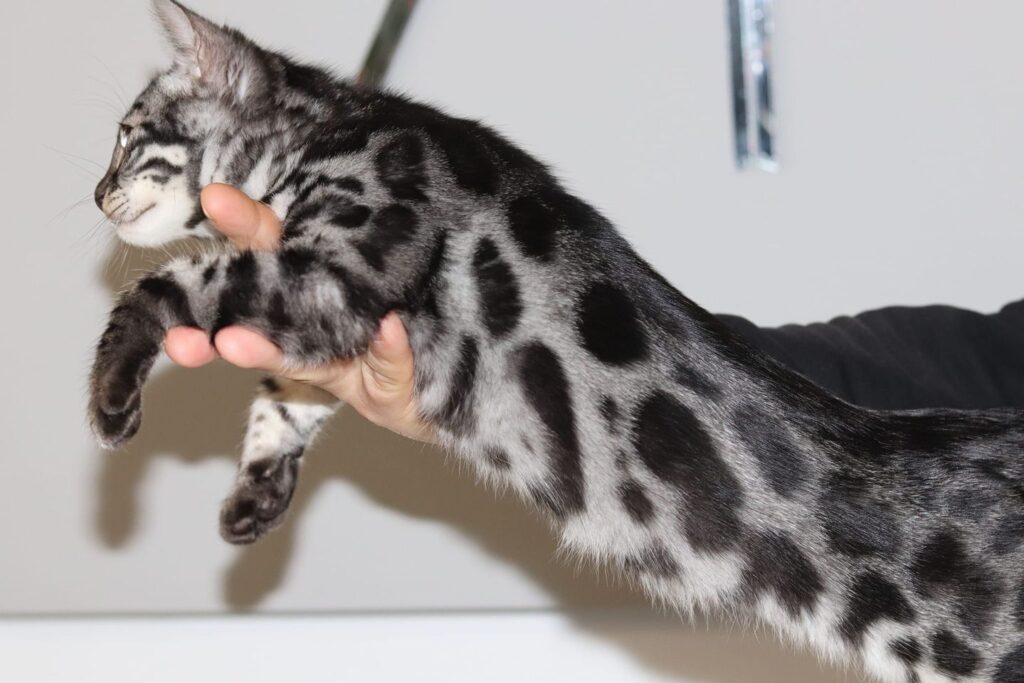Bengal cats are not just visually striking, they’re emotionally engaging, intellectually stimulating, and behaviorally fascinating. Their appeal goes far beyond their leopard-like coats and athletic builds. For pet owners seeking a companion that blends wild beauty with domestic warmth, Bengals offer a rare and rewarding experience that few other breeds can match.
Originating from a cross between domestic cats and the Asian leopard cat, Bengals carry a genetic legacy that shapes their behavior in subtle yet profound ways. Unlike many exotic looking pets, Bengals are fully domesticated, but their lineage imbues them with heightened sensory awareness, agility, and curiosity. These traits manifest in their daily interactions, making them unusually responsive to human emotions and environmental changes. Owners often report that Bengals seem to “read the room” adjusting their energy levels based on the mood of their household, engaging playfully when spirits are high, and offering quiet companionship during more subdued moments.
Their intelligence is another standout feature. Bengals are known to learn routines quickly, open doors, solve puzzles, and even mimic human behaviors. This cognitive sharpness isn’t just a novelty, it fosters a deeper bond between cat and owner. Training a Bengal to walk on a leash, respond to commands, or participate in interactive games isn’t just possible; it’s often welcomed by the cat. This level of engagement transforms pet ownership into a dynamic relationship, where mutual understanding and shared activities become part of daily life.
Socially, Bengals defy the aloof stereotype often associated with cats. They thrive on interaction—not just with humans, but with other pets as well. When properly introduced, Bengals often form strong bonds with dogs, other cats, and even children. Their playful nature makes them ideal for families, while their emotional sensitivity suits quieter households. They’re vocal without being disruptive, expressive without being demanding, and affectionate without being clingy. This balance makes them adaptable across cultures and lifestyles, whether in a bustling urban apartment or a serene countryside home.
Health wise, Bengals benefit from a robust genetic foundation. Responsible breeding practices have minimized hereditary issues, and their active lifestyle contributes to overall wellness. However, their high energy levels do require stimulation, both mental and physical. Owners who invest in climbing structures, puzzle feeders, and regular playtime are rewarded with a pet that remains vibrant and engaged well into adulthood.
What truly sets Bengals apart is their capacity to enrich human life. They’re not merely pets; they’re companions that challenge, comfort, and captivate. Their presence encourages mindfulness, playfulness, and emotional connection. For those willing to meet their needs and embrace their spirited nature, Bengals offer a pet experience that is as profound as it is joyful.
In a world where pet ownership is increasingly seen as a path to emotional well-being and personal growth, Bengal cats stand out as partners in that journey. Their uniqueness isn’t just skin-deep, it’s woven into every aspect of their being.
Their intelligence is another standout feature. Bengals are known to learn routines quickly, open doors, solve puzzles, and even mimic human behaviors. This cognitive sharpness isn’t just a novelty, it fosters a deeper bond between cat and owner. Training a Bengal to walk on a leash, respond to commands, or participate in interactive games isn’t just possible; it’s often welcomed by the cat. This level of engagement transforms pet ownership into a dynamic relationship, where mutual understanding and shared activities become part of daily life.
Socially, Bengals defy the aloof stereotype often associated with cats. They thrive on interaction, not just with humans, but with other pets as well. When properly introduced, Bengals often form strong bonds with dogs, other cats, and even children. Their playful nature makes them ideal for families, while their emotional sensitivity suits quieter households. They’re vocal without being disruptive, expressive without being demanding, and affectionate without being clingy. This balance makes them adaptable across cultures and lifestyles, whether in a bustling urban apartment or a serene countryside home.
Health wise, Bengals benefit from a robust genetic foundation. Responsible breeding practices have minimized hereditary issues, and their active lifestyle contributes to overall wellness. However, their high energy levels do require stimulation, both mental and physical. Owners who invest in climbing structures, puzzle feeders, and regular playtime are rewarded with a pet that remains vibrant and engaged well into adulthood.
What truly sets Bengals apart is their capacity to enrich human life. They’re not merely pets; they’re companions that challenge, comfort, and captivate. Their presence encourages mindfulness, playfulness, and emotional connection. For those willing to meet their needs and embrace their spirited nature, Bengals offer a pet experience that is as profound as it is joyful.
In a world where pet ownership is increasingly seen as a path to emotional well being and personal growth, Bengal cats stand out as partners in that journey. Their uniqueness isn’t just skin-deep, it’s woven into every aspect of their being.
You might also like:

